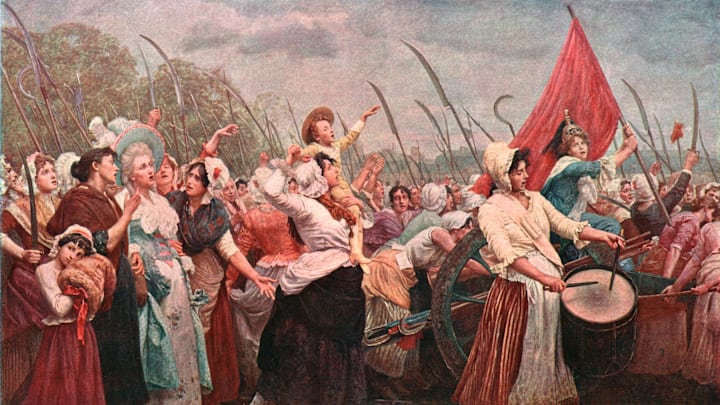The French Revolution and the Rise of Napoleon

The causes of the French Revolution were multifaceted. The financial crisis facing the French monarchy was a significant factor. Years of costly wars, including support for the American Revolution, had depleted the royal treasury. The government, under King Louis XVI, faced mounting debt and was unable to effectively manage the financial crisis. Attempts to reform the tax system and raise revenues were met with resistance from the privileged classes, exacerbating the crisis.
Social inequality and discontent were also major drivers of the revolution. French society was divided into three estates: the clergy (First Estate), the nobility (Second Estate), and the commoners (Third Estate). The Third Estate, which comprised the vast majority of the population, bore the brunt of taxation and had little political power. This inequality, coupled with rising food prices and economic hardship, fueled widespread anger and demands for change.
The Enlightenment, an intellectual movement that emphasized reason, individual rights, and the critique of traditional authority, provided the ideological foundation for the revolution. Enlightenment thinkers such as Voltaire, Rousseau, and Montesquieu challenged the legitimacy of absolute monarchy and advocated for political and social reforms. Their ideas inspired the revolutionaries and shaped the goals of the revolutionary movement.
The French Revolution began in earnest with the convening of the Estates-General in May 1789. The Third Estate, frustrated by their lack of representation, declared itself the National Assembly and vowed to draft a new constitution. This act marked the beginning of a series of radical changes, including the storming of the Bastille on July 14, 1789, a symbolic event that demonstrated the power of the revolutionary movement.
The revolution saw the rise of radical political factions, most notably the Jacobins, led by figures such as Maximilien Robespierre. The Jacobins advocated for the abolition of the monarchy and the establishment of a republic. The execution of King Louis XVI in January 1793 marked the end of the monarchy and the beginning of the Reign of Terror, a period characterized by intense political purges and the execution of perceived enemies of the revolution.
The internal and external challenges faced by revolutionary France led to the rise of Napoleon Bonaparte. A successful military leader, Napoleon capitalized on the chaos and instability of the revolution to gain power. In 1799, he orchestrated a coup d'état, known as the 18th Brumaire, which led to the establishment of the Consulate and eventually his proclamation as Emperor of France in 1804.
Napoleon's rise to power marked a new phase in the legacy of the French Revolution. He implemented significant reforms that reflected the principles of the revolution, including the Napoleonic Code, which established a uniform legal system based on equality before the law and the protection of property rights. His administrative and educational reforms modernized French society and governance.
However, Napoleon's ambitions for territorial expansion and dominance led to a series of conflicts known as the Napoleonic Wars. These wars, which spanned much of Europe, resulted in significant political and territorial changes, the spread of revolutionary ideals, and the eventual defeat of Napoleon in 1815 at the Battle of Waterloo.
In conclusion, the French Revolution and the rise of Napoleon were pivotal events that reshaped France and had a profound impact on the global order. The revolution challenged the established social and political order, inspired the rise of radical political movements, and laid the groundwork for modern democratic principles. Napoleon's rise and subsequent fall further transformed Europe and spread the revolutionary ideals beyond France. The legacy of the French Revolution continues to influence contemporary political thought and the pursuit of social and political justice.